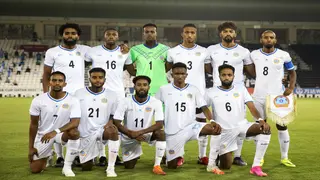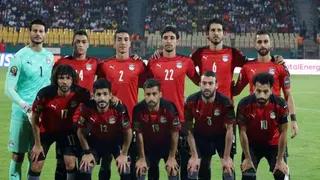Historical milestones of Somalia's national football team
Football
The news of the Africa Cup of Nations (AFCON) coming to the East Africa region for the first time in the competition's history was well received by netizens.
The Confederation of African Football (CAF) settled on a joint bid by Kenya, Tanzania and Uganda to host the 2027 edition, beating solo bids from Senegal, Egypt and Botswana.

Speculation had been rife that Senegal would be awarded the rights considering the country's latest achievements from its youth teams and senior men's team, who are the defending African champions.
But a strong bid from the three East African nations dubbed the 'Pamoja' bid was surprisingly announced as the winner on September 27 by CAF President Patrice Motsepe, setting off celebrations in the three countries.
Historical milestones of Somalia's national football team
Football
The awarding of hosting rights is always premised on strong plans and how they can be actualised - not necessarily the current state. Once the plan is deemed strong enough, the onus is on you to make it happen before the set strict timelines.
In documents seen by Sports Brief, the Pamoja bid managed to convince CAF's Exco committee on the basis that no East African nation had ever hosted the AFCON before. The last time it was held in the greater Eastern Africa region was when Ethiopia hosted the 1976 edition.
The bid also stressed the importance of how other nations in the continent had benefited from hosting a tournament of such magnitude and thus, it was the turn of Kenya, Uganda and Tanzania to reap such benefits.
The three countries have a combined population of at least 300 million people who are crazy about football and will provide maximum capacity crowds in the stadiums, which will result in increased revenue for CAF and the hosting countries.
Best American Football team: Which is the best American Squad for the upcoming World Cup
Football
Fan apathy has been a concern not only to CAF but in other FIFA events.
Proper infrastructure is always a key issue before a country is awarded hosting rights. Kenya has, in the past, been stripped of the rights to host the 1996 AFCON and 2018 Africa Nations Championships(CHAN) in what was termed as a lack of preparedness.
To address this, the Pamoja bid reiterated that the three governments had already put in concerted efforts to have all the required facilities ready for the tournament. As it stands, only Tanzania has CAF-approved stadia.
In Kenya, the Sports Cabinet Secretary Ababu Namwamba recently handed over the Kasarani, Nyayo and Kipchoge Keino stadia to the military to begin the rehabilitation processes. The government also intends to build a 50,000-seater Talanta Hela stadium.
CAF requires a host nation to have at least six stadia, but AFCON 2027 might see up to 10 stadia in use. The Benjamin Mkapa stadium in Dar Es Saalaam is, so far, the only approved ground. The Taifa Stars are expected to front another stadium, with the Amaan in Zanzibar being considered. Uganda will present the Nelson Mandela Stadium and Nakivubo in Kampala.
Best African Football team: Which is the best African squad for the upcoming World Cup and why?
Football
The decision on who will host the opening match and the final will be decided later.
The Pamoja bid also sold the idea of a single visa to the 7 EAC countries and thus, fans won't be required to have separate visas for each country. The region also boasts of accessible transport, with Kenya alone having four international airports.
The host cities also have an array of five-star hotels that will provide accommodation to the visiting fans plus indulge them in their tourist sites for leisure activities.
The whole project is expected to cost approximately 12 billion Kenya shillings, exclusive of inflation rates, as reported by the Standard.
The blueprint and plan worked on paper, but the three states know that the real work starts now lest those rights get taken away. The renovation of stadia is expected to take centre stage as they seek to beat the CAF deadlines.
The AFCON will first head to Ivory Coast next year before heading up North to Morocco in 2025 before East Africa gets an opportunity to welcome the continent.